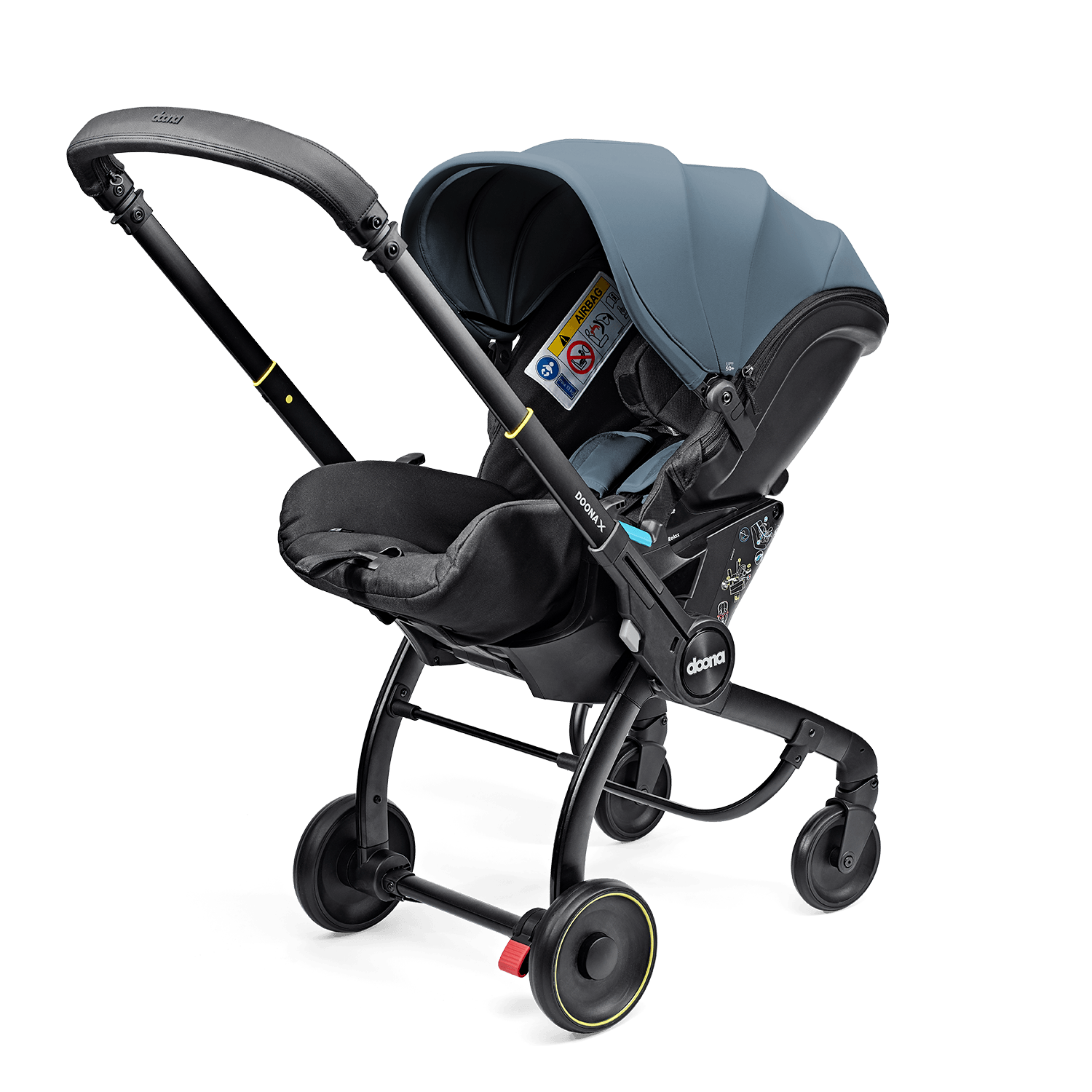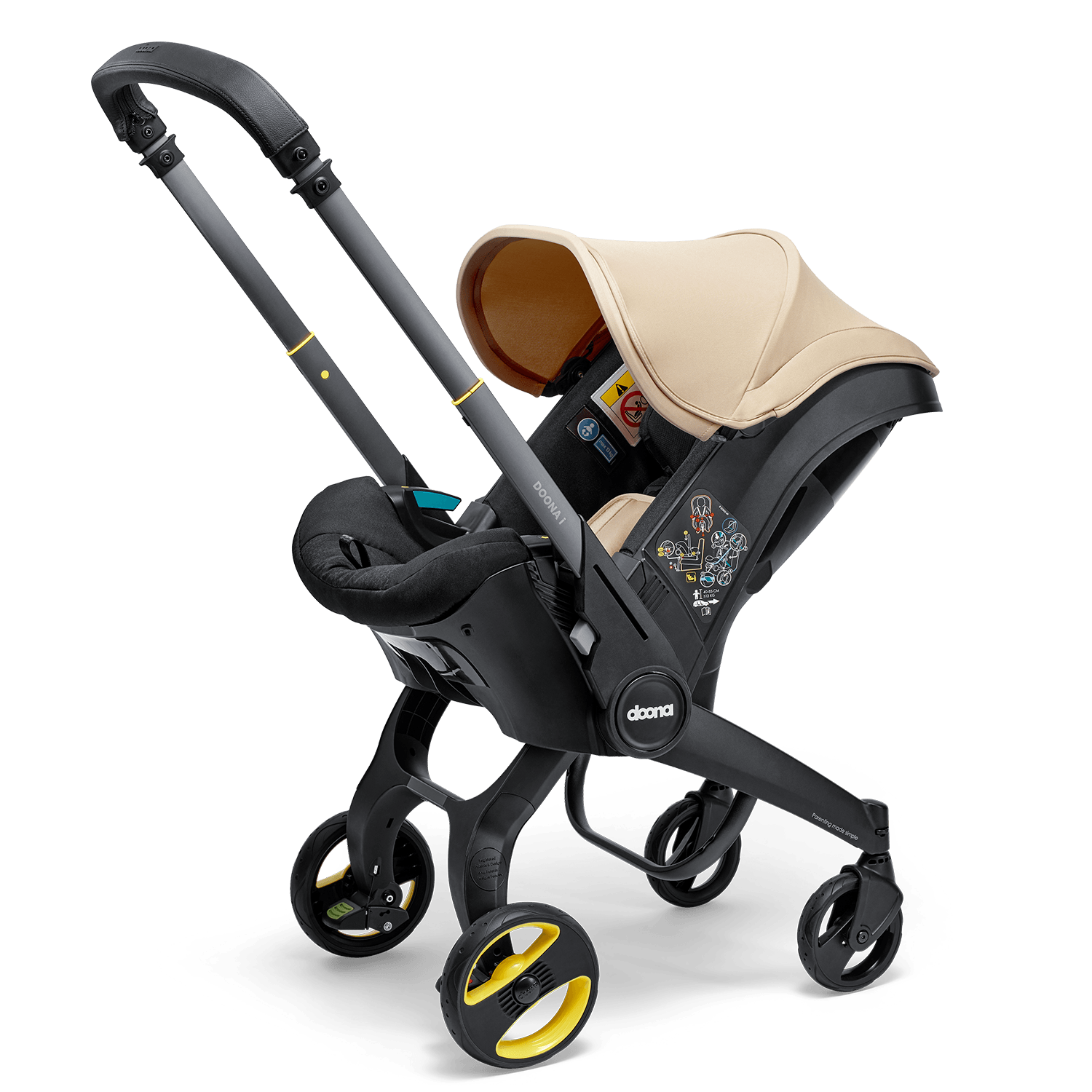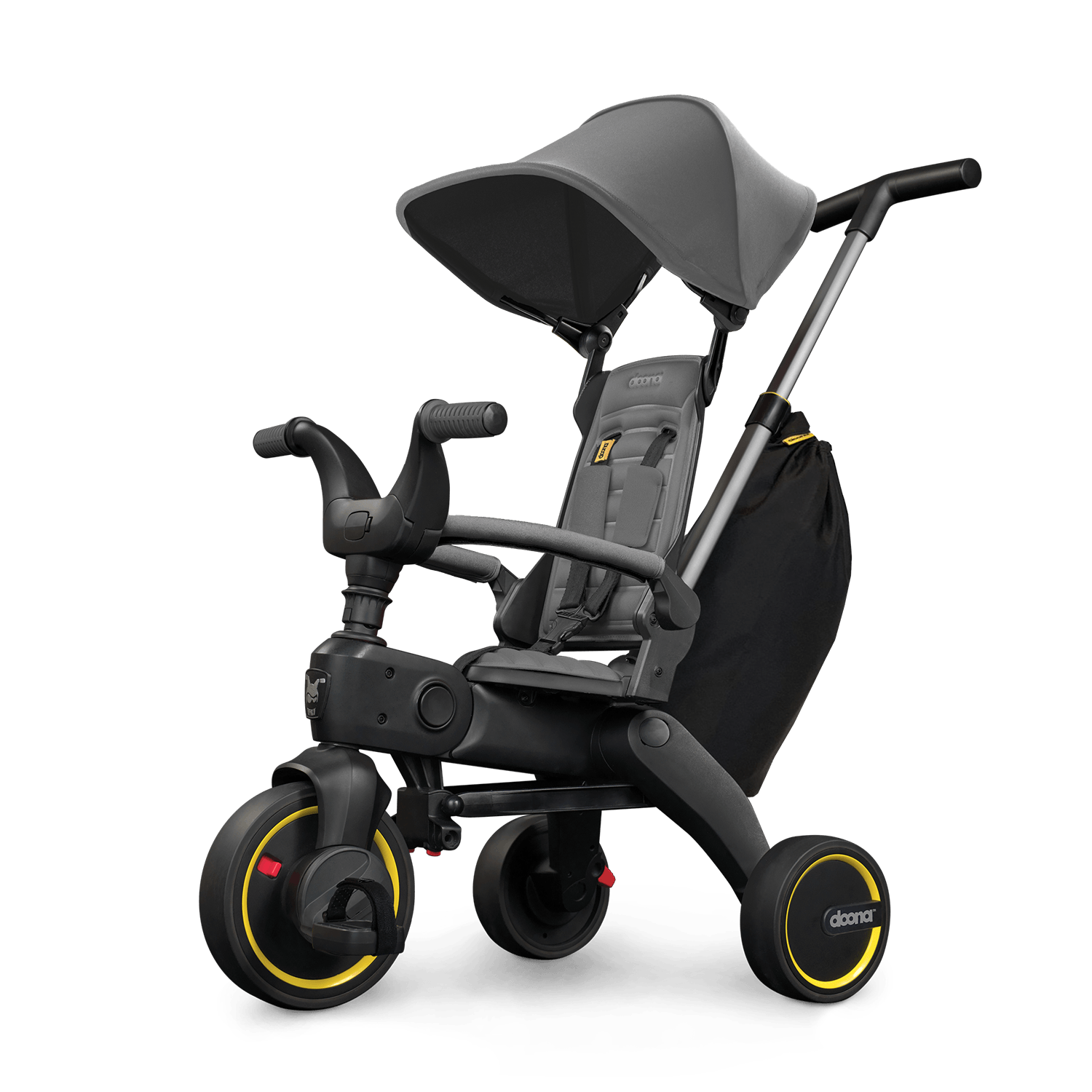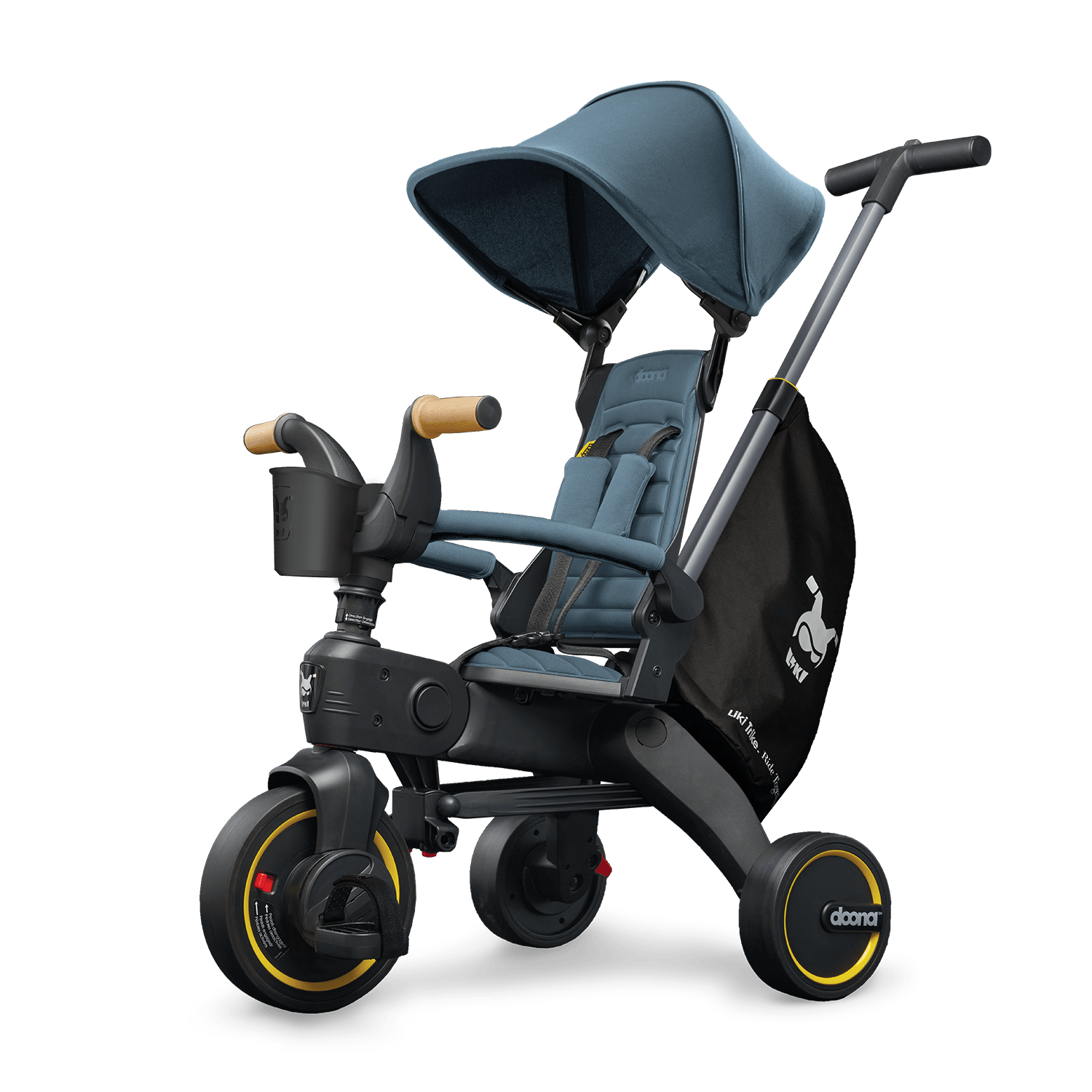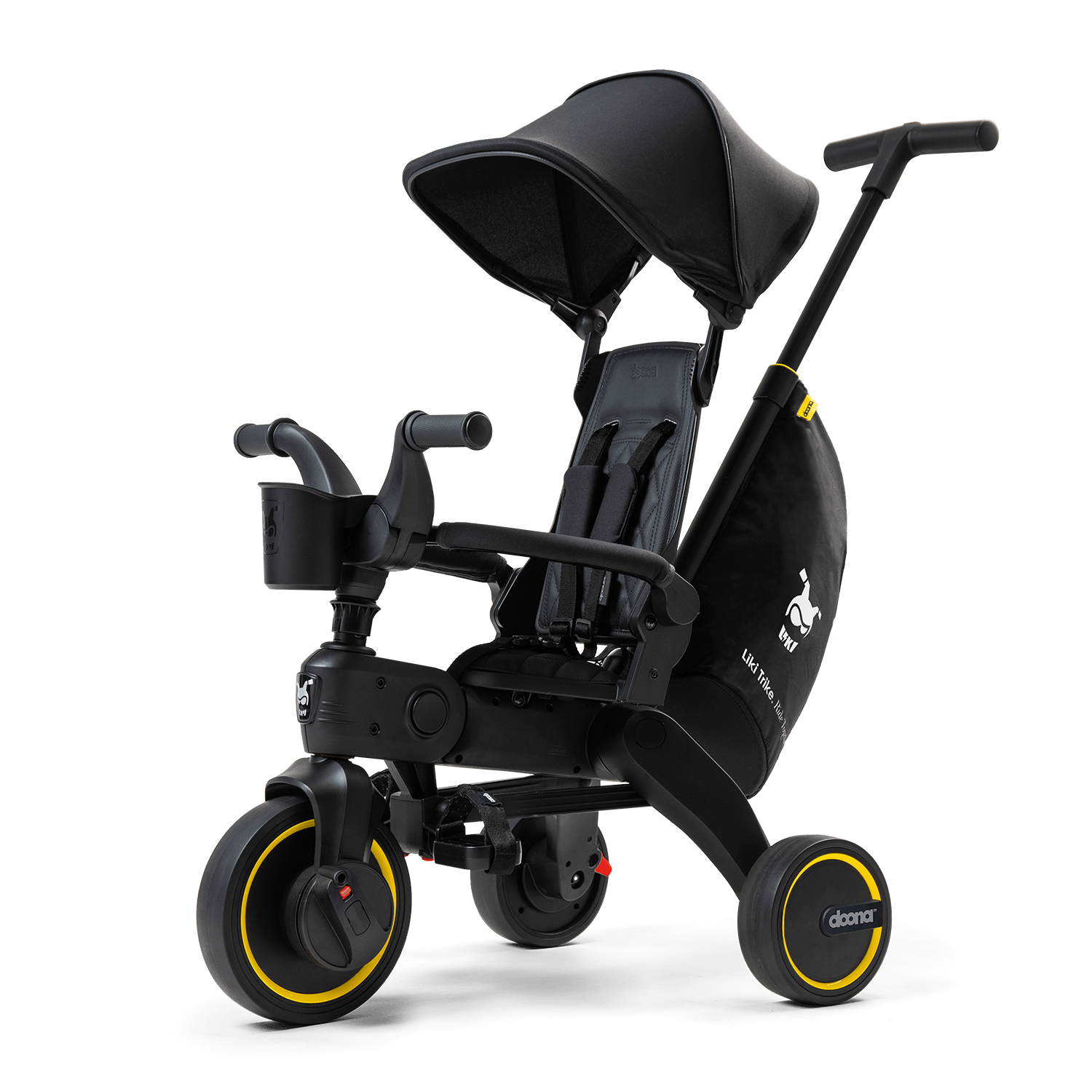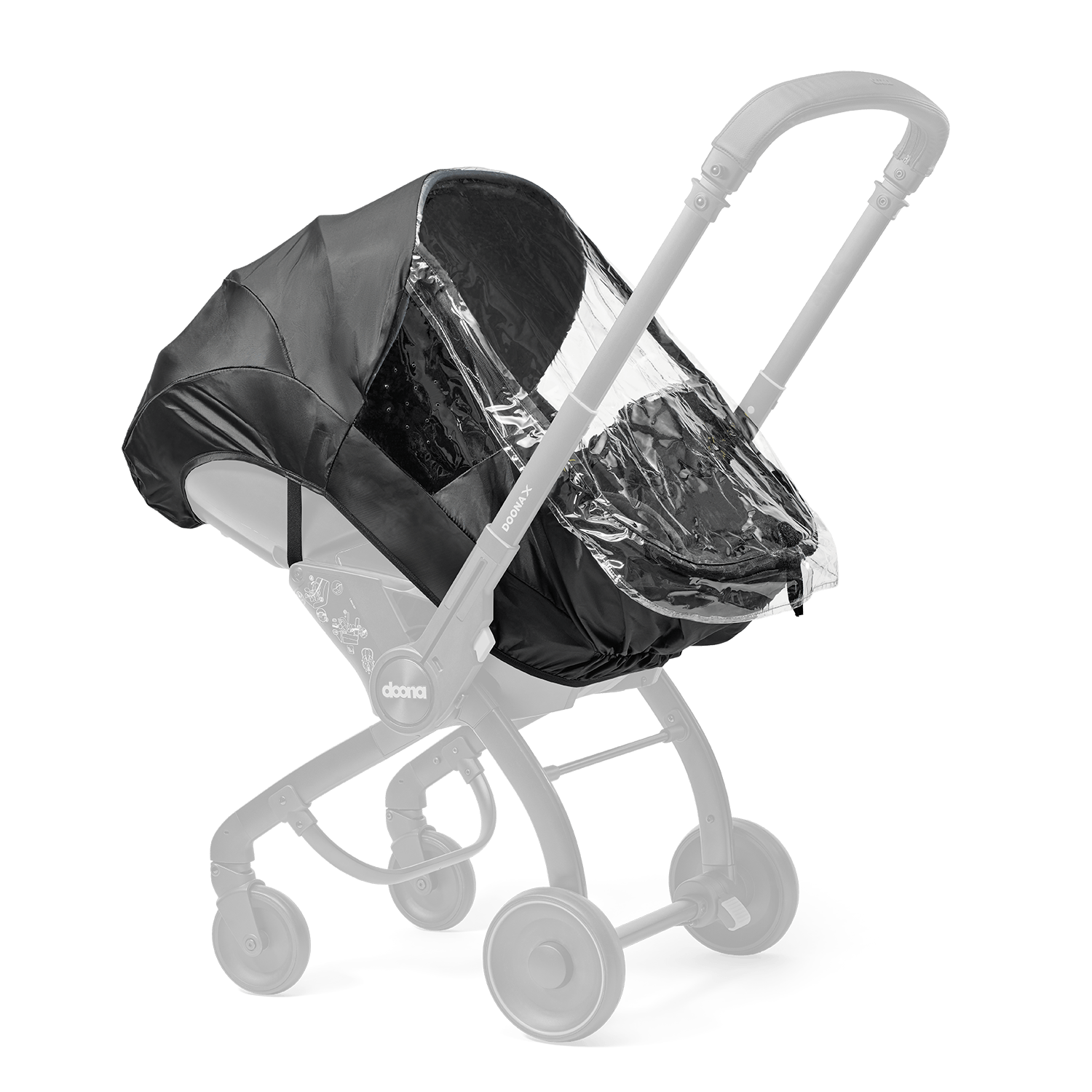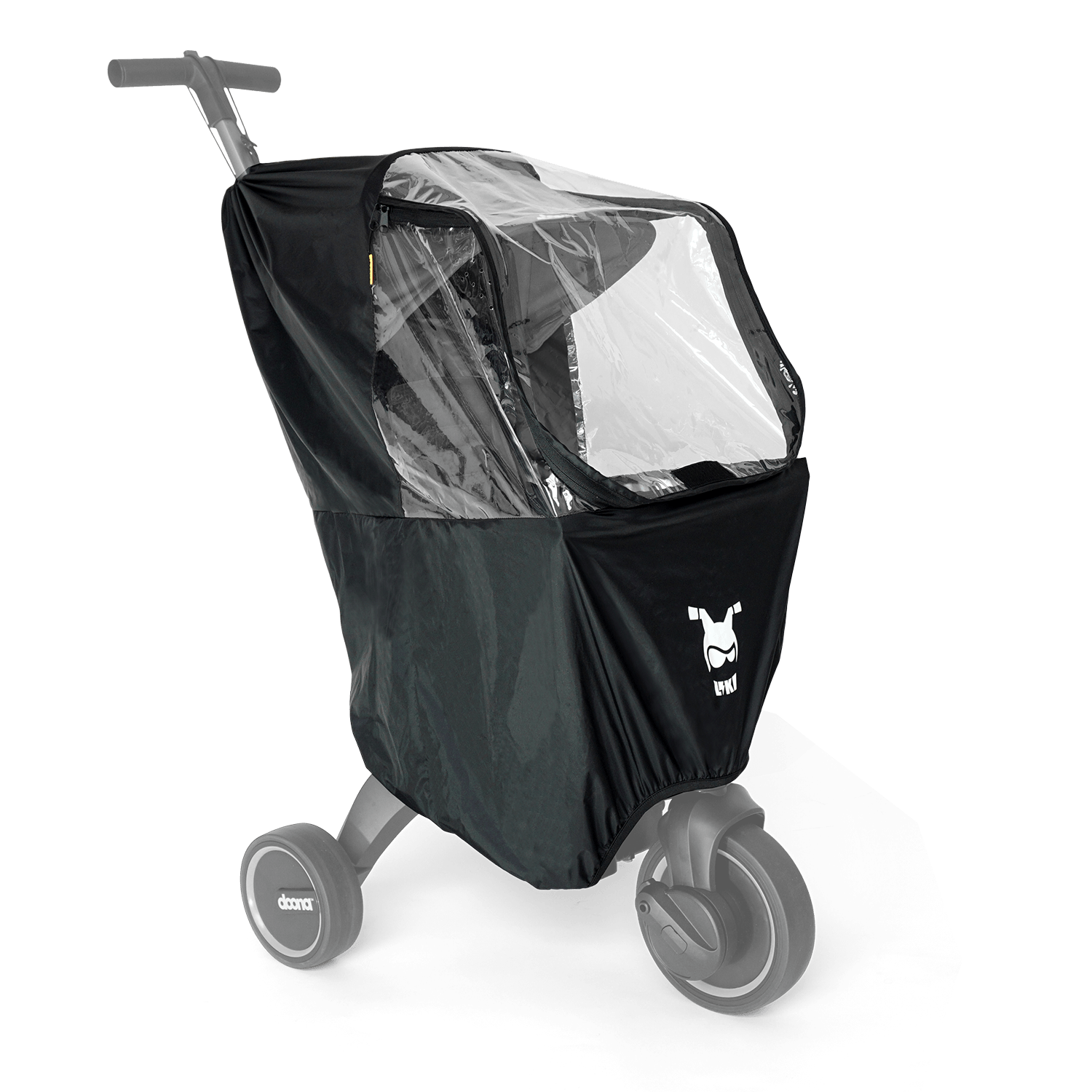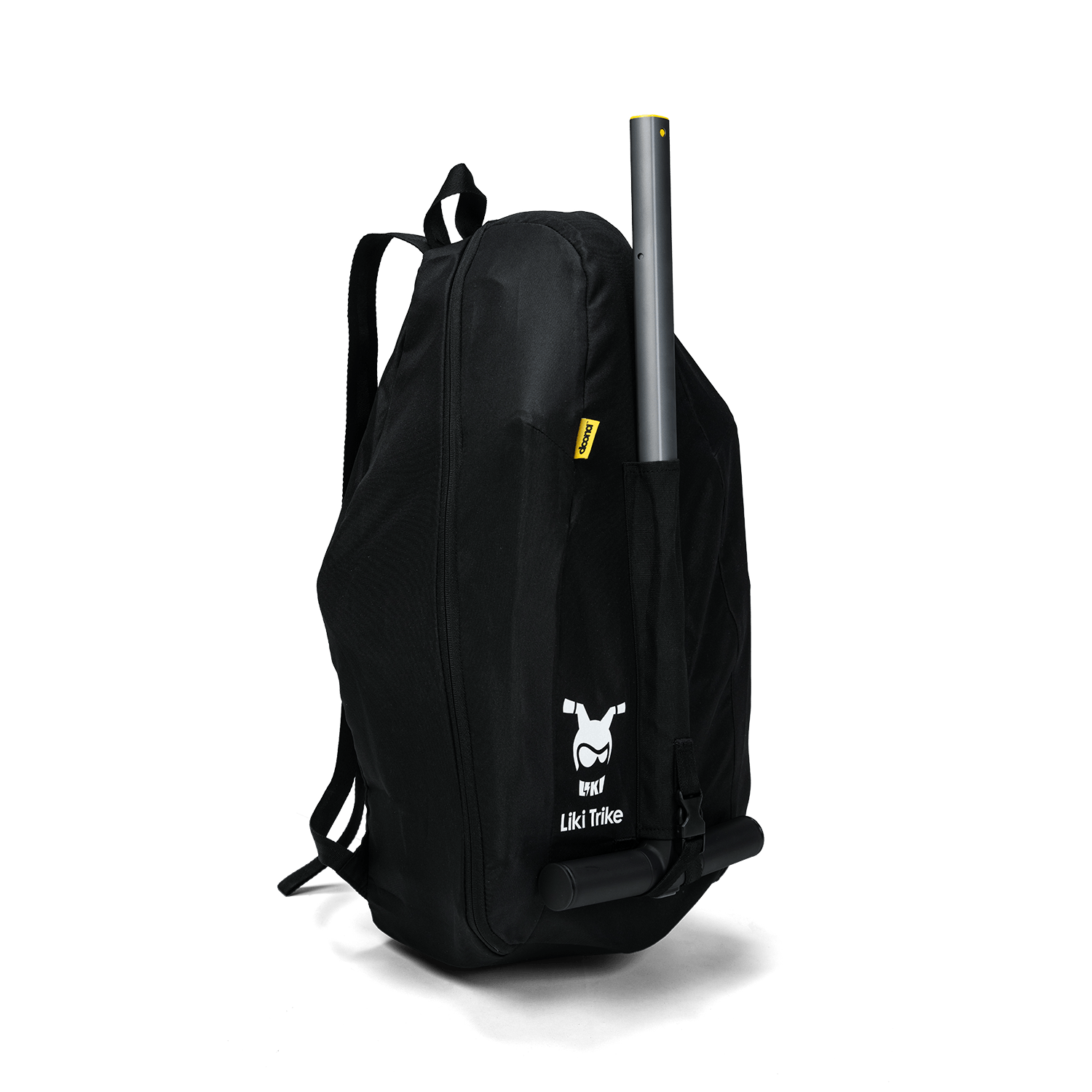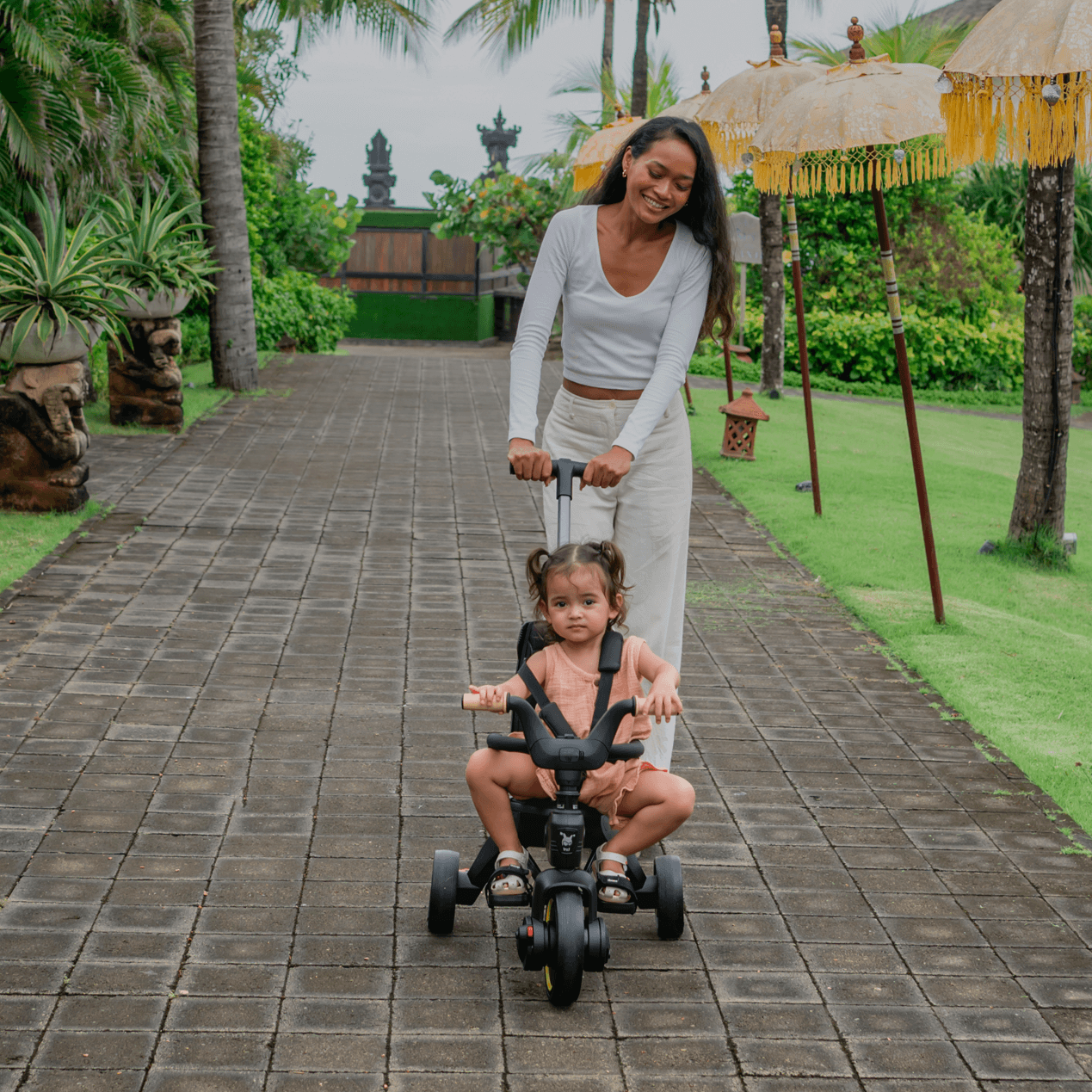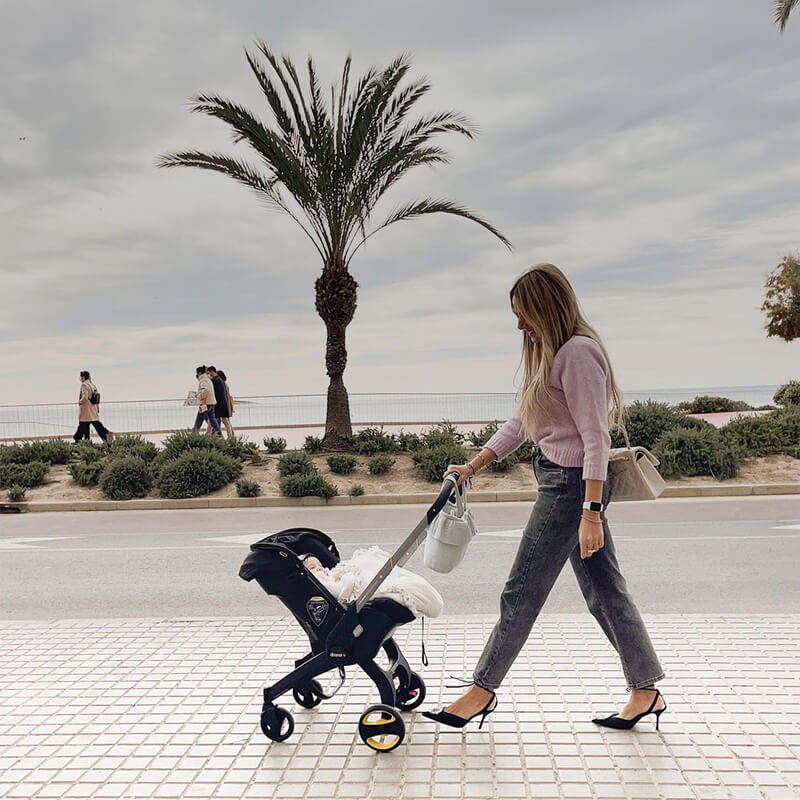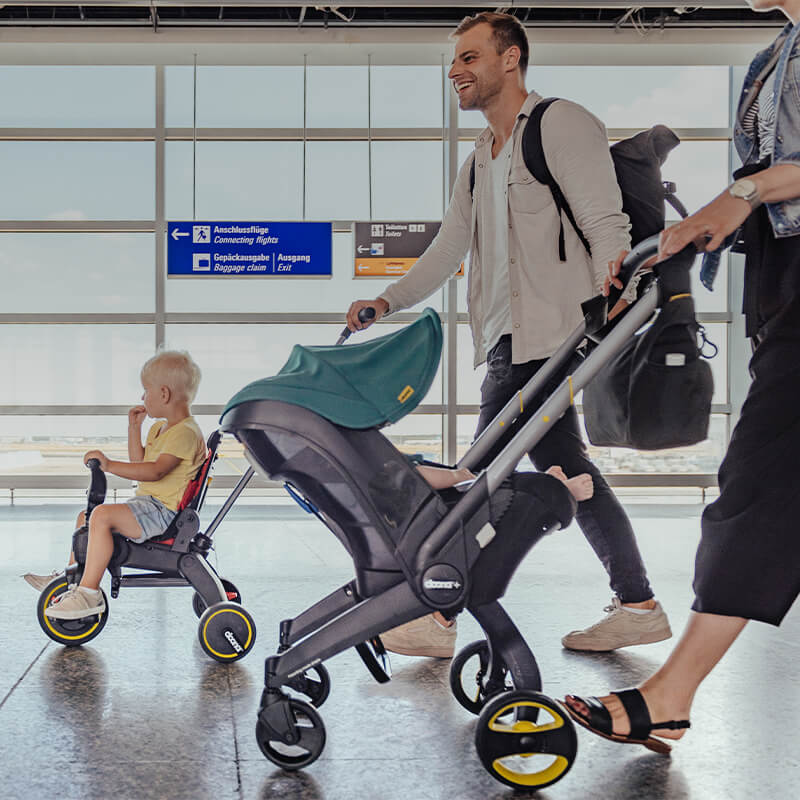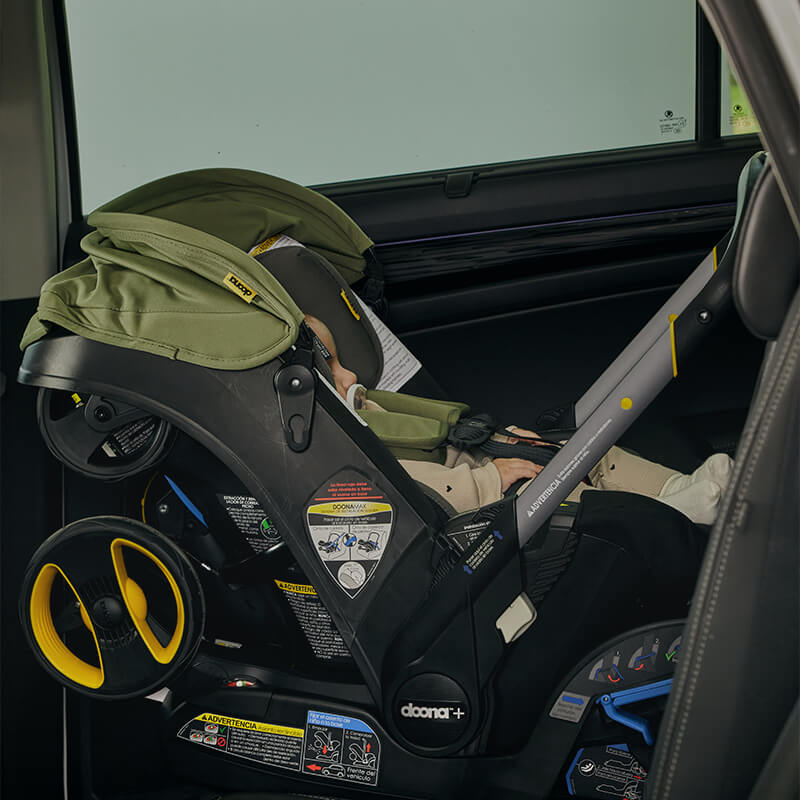Navigating toddler sleep routines on the go
Traveling with toddlers can be an exciting adventure, but it can also disrupt their sleep routines. As a parent, it's key to prioritize your child's sleep because it directly impacts their mood, behavior, and overall well-being. At Doona, our mission is to simplify parenthood. We understand the challenges of traveling with toddlers and the impact it can have on their sleep routines. That's why we're here to provide practical strategies and valuable tips for managing sleep routines while on the go. By implementing these suggestions, you can ensure a smoother transition and a more restful trip, making your journey with your little one a more enjoyable experience.
Stick to a familiar bedtime routine
Maintaining a consistent bedtime routine is important for toddlers, even when away from home. It helps signal them it's time to wind down and prepare for sleep. To create a familiar sleep environment, pack sleep essentials like their favorite blanket, stuffed animal, or any other comfort item. Stick to the typical activities you usually follow at home, such as bath time, brushing teeth, reading bedtime stories, and cuddling. Consistency is crucial in establishing a sense of familiarity. You can also consider using a portable white noise machine or phone apps that play familiar lullabies if your toddler relies on sounds or music to fall asleep.
Plan travel around sleep schedules
When traveling with toddlers, it’s beneficial to plan your travel arrangements around their sleep schedule. Whenever possible, opt for flights or travel during their nap time to ensure they get the rest they need. You can also look for accommodations that offer separate sleeping areas or rooms, allowing you to maintain their routine without disturbances. Prior to reaching your destination, allocate some downtime to help your child adjust to the new environment before bedtime.
Create a sleep-friendly environment
Creating a sleep-friendly environment can significantly impact your little one’s ability to fall asleep and stay asleep while traveling. To achieve this, consider the following. Bring blackout curtains or portable shades to help block out excess light in unfamiliar environments, signaling it's time to sleep. Secondly, use a travel crib or portable bed that your toddler is familiar with, which will provide a sense of comfort and security. Lastly, maintain a comfortable temperature level and dress them in suitable sleepwear to ensure they are not too hot or cold.
Be mindful of time zone changes
When traveling across time zones with your toddler, there are several strategies you can incorporate to help them adjust to the new schedule. Gradually shift their sleep times before the trip, expose them to natural light during the day, and synchronize their meal times with the local schedule. Encourage physical activity and ensure they have comfort objects, such as blankies or stuffed animals. These tips will help make the adjustment smoother, allowing them to stick to their sleep routine while adapting to the new schedule.
Stay calm and flexible
Remember, traveling can be both exciting and challenging for toddlers. It's important to stay calm, flexible, and prepared for unexpected situations. Your relaxed demeanor plays a crucial role in creating a positive sleep environment for your child. If your little one has trouble falling asleep in a new place, offer extra reassurance and comfort. Cuddle with them, use soothing words, or simply sit beside them until they doze off. Patience and consistency are key during this time. Even if there are temporary setbacks in their sleep routine, try to maintain a sense of predictability by sticking to familiar patterns.
At Doona, we understand the challenges of traveling with little ones and the importance of ensuring their sleep routines are maintained. That’s why we created innovative and functional travel baby products like our Doona Car Seat & Stroller and Liki Trike, to make your journey more convenient and enjoyable. Check out our parenting tips for more tips, advice from industry experts and parents, and more.
